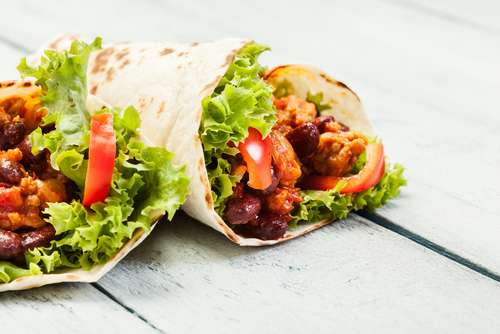Chipotle Tosses GMOs, but Will Other Restaurants Follow?
 Chipotle, the national fast-food chain, tossed the last of its genetically-modified ingredients from its 1,800 restaurants this week.
Chipotle, the national fast-food chain, tossed the last of its genetically-modified ingredients from its 1,800 restaurants this week.
The Mexican-style restaurant said it was concerned about the long-term effects of GMOs for its patrons, and for that of the environment.
But other restaurants might not find it as easy to go cold-turkey from the genetically engineering crops currently dominating the market. The vast majority of the corn and soybeans grown domestically come from DNA-modified strains, according to federal agencies.
Chipotle may likely find itself alone among major U.S. franchises, until that economic arithmetic changes.
“There is a lot of debate about genetically modified foods,” said Steve Ells, the founder and CEO of Chipotle. “Though many countries have already restricted or banned the use of GMO crops, it’s clear that a lot of research was still needed before we can truly understand all of the implications of widespread GMO cultivation and consumption. While that debate continues, we decided to move to non-GMO ingredients.”
Chipotle has apparently found a way to buck the GMO trend by getting its suppliers to plant natural corn for its tortillas, and to replace soybean oil with sunflower and rice bran oils for cooking, the company said in a release. Those were the two major changes the company needed to cut GMOs from its menu, they added.
Commercial use of genetically-modified crops began in the U.S. in 1996. Since then, the artificial strains have dominated corn, soybean and cotton cultivation. Some 94 percent of corn and 93 percent of soybeans have been scientifically altered, according to the USDA.
Some GMO opponents estimate that as much as 80 percent of foods eaten in the U.S. are genetically modified in some way.
The critics contend that genetic modification of foods is little understood. Some claim they pose toxic or allergy risks to human who eat them – and also challenges to the environment’s natural balance. Since the technology is relatively new, the risks and drawbacks should be studied, they said.
One apparent environmental consequence identified by scientists is the decline of the Monarch butterfly. Since genetically-engineered crops in the Midwest have resistance to certain herbicides, farmers in North America have been able to spray more around the edges of crops – essentially killing off the milkweed which is the traditional food for the migrating butterflies.
The agricultural companies who engineer the crops say they are trying to offer sustainable food supplies which will grow to feed a burgeoning worldwide population – and still be safe for the ecosystem. The GMO strains decrease the use of pesticide chemicals, and also are more productive, the companies say.
“Farmers around the world will be responsible for providing a balanced plate for more than 9 billion people by 2050. To do it, we will need to effectively double the food supply,” said Robert Fraley, Ph.D., Monsanto’s chief technology officer, in January.
“Science and innovation play an important role in meeting this challenge, and Monsanto’s R&D; platforms, related pipeline advancements and collaboration with other experts are critical to meeting the future needs of our population,” the Monsanto official added.
The debate sharply divides the scientific community and the American public-at-large. Just 37 percent of Americans consider genetically-modified foods safe – compared to 88 percent of the scientific community, according to recent findings by the Pew Research Center.
Chipotle was the first company to tap into the consumer suspicion of GMOs. The restaurant chain pledged initially to label the GMOs in its ingredients in 2013. A handful of other companies have now followed suit. Whole Foods said it will label all genetically-engineered ingredients by 2018, and Walmart has announced its intention to expand its organic selections at stores nationally.
But most other national chains have not weighed in on the GMO controversy. Indeed, Chipotle itself appears to be a special case – its entire menu consists of just 46 ingredients, excluding tortillas. But those tortillas continue to pose a challenge, since they have to continue to use additives to make the volume necessary to supply the franchises.
Other fast-food companies which serve Mexican-style food use 200 ingredients for their menus, Chipotle claimed.
There is another drawback: Chipotle said it would raise its prices slightly this year, according to a report in The New York Times.




